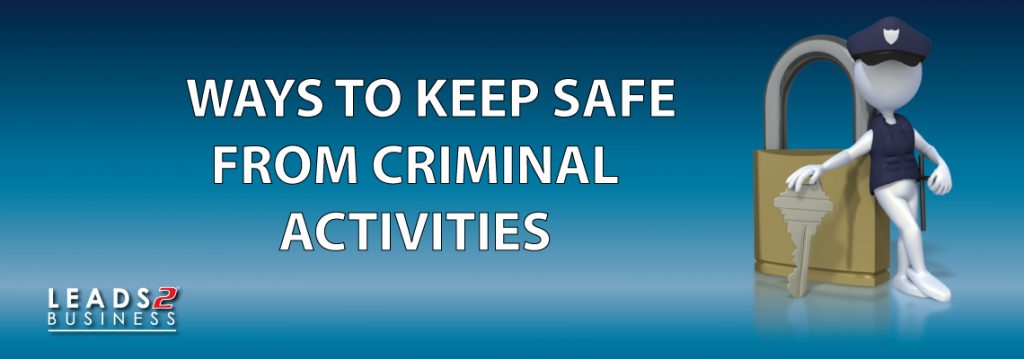How to Stay Safe from Criminal Activity

How do we stay safe in a world where crime is always prevalent? Anyone and everyone is a target nowadays.
According to reports from IOL and BusinessTech these are some of SA’s biggest crimes:
Drugs
Burglary
Assault
Theft
Malicious injury to property
Commercial crime
Career Scams
Inheritance fraud
Online Gaming Fraud
Criminals devise new tactics daily.
Cybercrime remains a massive global threat with text, voice, malware and email to name a few. Banks alone list at least 16 Types of Scams on their website:
Vishing scam (otherwise known as phone call scamming)
Remote access takeover scam
Phishing scam (emails)
Change of banking details scam
SIM swap scam
Twin SIM scam (duplication of your SIM)
Number porting scam
Deposit and refund scam
Spoofed website scam (fake websites that look legitimate)
419 scam (upfront payments)
Dating and romance scam
Holiday scam (false advertisements)
Keylogger scam (software recording keystrokes)
Smishing scam (SMS)
Online goods scam
Email hacking scam
In most cases the main aim of criminals using the above types of scams is to obtain your personal information for financial gain. This is often achieved by impersonating companies (like SARS) and deceiving unsuspecting individuals.
Do you know how to identify these crimes? How can you decrease your likelihood of falling prey to criminals and fraud?
Having healthy scepticism and security protocols are key in staying safe from criminals.
Some red flags and general tips to stay safe are:
Be aware of your surroundings and trust your gut
Competitions you win but never entered
Upfront payments to receive money/prizes
Always log off/sign out
Latest anti-virus versions
Don’t auto-save passwords
Avoid using public computers
Type the URL – Don’t use links
Set transaction banking limits
Use websites that have a lock icon as well as “https://”
Protect and don’t share personal information/passwords/OTPs
Strong, impersonal, unique and frequently changed passwords (password tips from How-To-Geek)
Don’t confirm personal or account details via a hyper-link, icon or attachment in an email or over the phone
Other identifiers specific to emails/phishing also include:
Displayed names and headers can be deceiving
Look first before clicking
Typos and Grammar
Analyse greetings
Beware of urgent/threatening requests
Assess the signature
Don’t open or download attachments
Delete, mark as spam/junk and report
Lastly: If it’s too good to be true… it probably is.
The above suggestions don’t guarantee your safety from criminal activity. Technology is ever evolving and opportunists are always developing new tactics.
Be vigilant, stay informed of the latest trends and as they say “fore-warned is fore-armed”.
Sources/Further Reading:
Cambridge Dictionary
BamkingOrg
StandardBank
MyBroadband
Nedbank
IOL
SafeInternetBanking
PhishingOrg
CSOOnline
GlobalSign
PixelPrivacy
ZoneAlarm
Comodo
Norton
InfoBunny
DuoCircle
If you are interested in becoming one of our subscribers, please visit Leads 2 Business.
To view notes with screenshots on how to use our website, please visit Leads 2 Business Wiki.
To view more Events, please visit our Leads 2 Business Blog.
About Sasha Anderson
Millennial Mom + wife living the hash-tag life. Remember: If You Fail - Fail Forward
- Web |
- More Posts(258)

